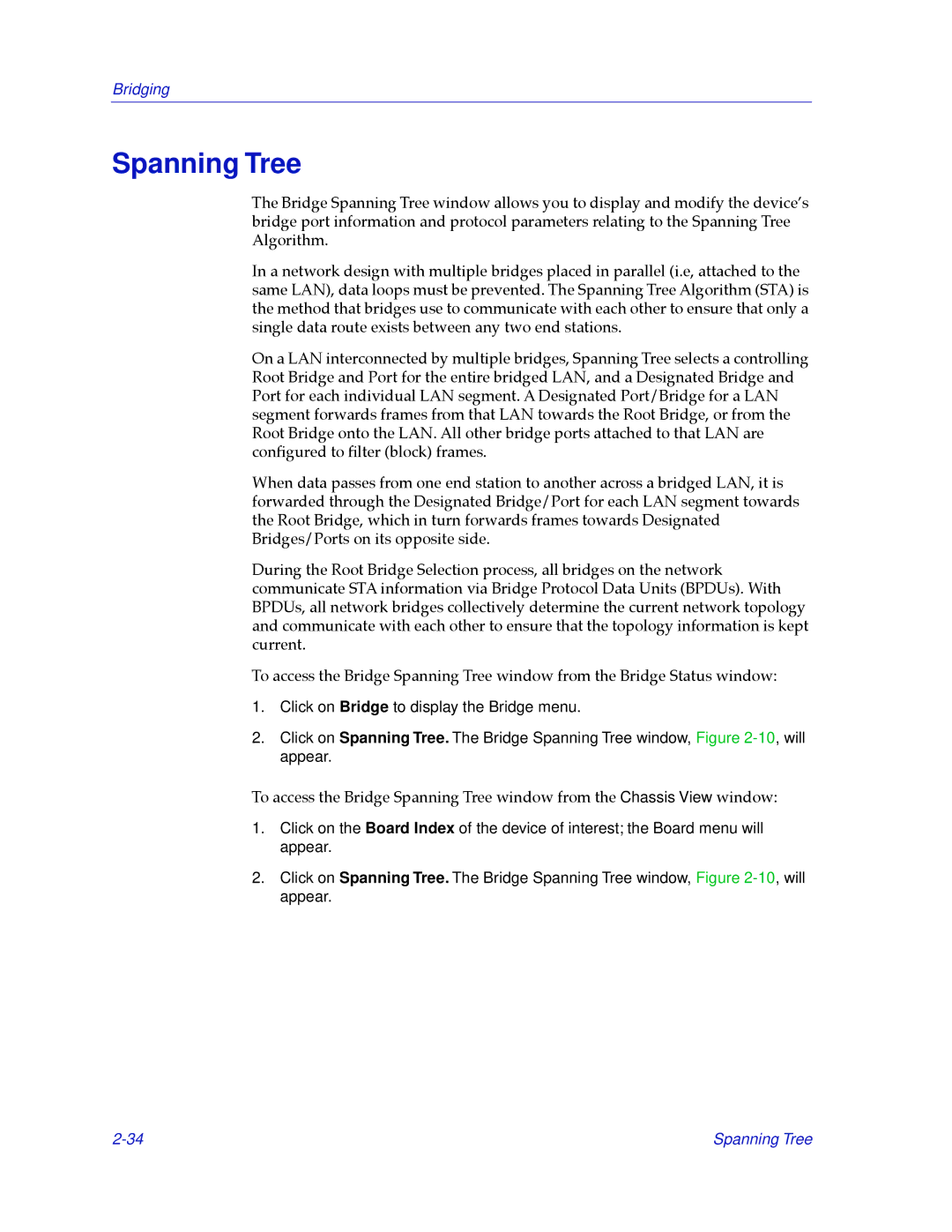Bridging
Spanning Tree
The Bridge Spanning Tree window allows you to display and modify the deviceÕs bridge port information and protocol parameters relating to the Spanning Tree Algorithm.
In a network design with multiple bridges placed in parallel (i.e, attached to the same LAN), data loops must be prevented. The Spanning Tree Algorithm (STA) is the method that bridges use to communicate with each other to ensure that only a single data route exists between any two end stations.
On a LAN interconnected by multiple bridges, Spanning Tree selects a controlling Root Bridge and Port for the entire bridged LAN, and a Designated Bridge and Port for each individual LAN segment. A Designated Port/Bridge for a LAN segment forwards frames from that LAN towards the Root Bridge, or from the Root Bridge onto the LAN. All other bridge ports attached to that LAN are conÞgured to Þlter (block) frames.
When data passes from one end station to another across a bridged LAN, it is forwarded through the Designated Bridge/Port for each LAN segment towards the Root Bridge, which in turn forwards frames towards Designated Bridges/Ports on its opposite side.
During the Root Bridge Selection process, all bridges on the network communicate STA information via Bridge Protocol Data Units (BPDUs). With BPDUs, all network bridges collectively determine the current network topology and communicate with each other to ensure that the topology information is kept current.
To access the Bridge Spanning Tree window from the Bridge Status window:
1.Click on Bridge to display the Bridge menu.
2.Click on Spanning Tree. The Bridge Spanning Tree window, Figure
To access the Bridge Spanning Tree window from the Chassis View window:
1.Click on the Board Index of the device of interest; the Board menu will appear.
2.Click on Spanning Tree. The Bridge Spanning Tree window, Figure
Spanning Tree |
